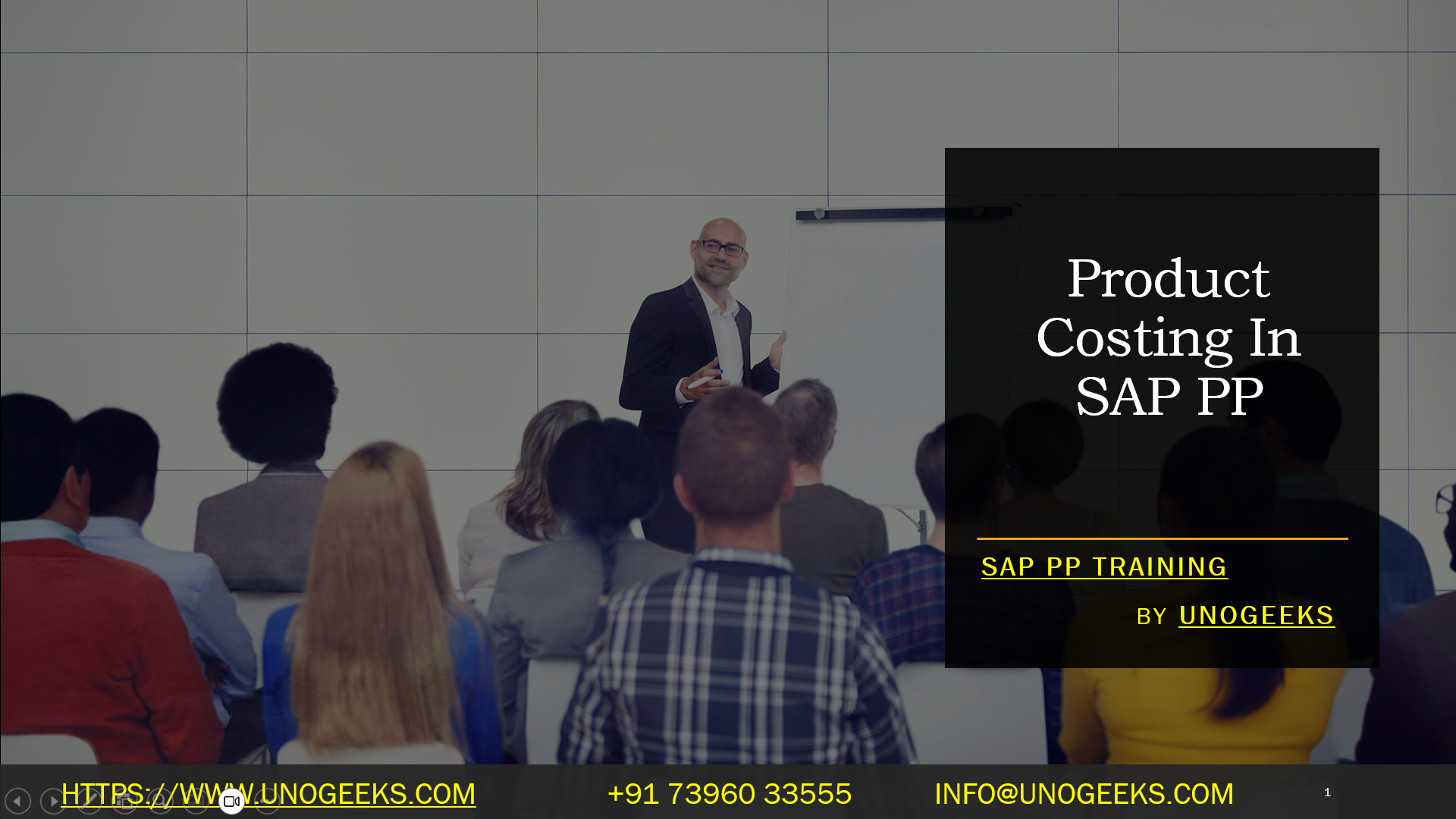Product Costing In SAP PP
Product Costing in SAP PP: A Comprehensive Guide
Product costing is essential for businesses to determine the true cost of their products. It’s a crucial process that impacts pricing decisions, profitability analysis, and overall financial health. SAP PP (Production Planning), a core module within the SAP ERP system, offers robust tools for accurately calculating and analyzing product costs.
What is Product Costing?
Product costing is the process of calculating all costs involved in producing goods or services. This includes:
- Direct Material Costs: Raw materials and components directly used in manufacturing.
- Direct Labor Costs: Wages, salaries, and benefits directly attributed to production processes.
- Manufacturing Overhead Costs: Indirect costs associated with production like rent, utilities, depreciation, indirect labor, etc.
Why is Product Costing in SAP PP Important?
- Informed Pricing Decisions: Understanding true costs facilitates accurate pricing for profitability.
- Cost Control: Identifies areas where costs can be reduced for greater efficiency.
- Inventory Valuation: Assigns accurate values to stock, impacting financial accounting.
- Profitability Analysis: Provides insights into product-wise profitability for better decision-making.
SAP PP Product Costing Process
Here’s a breakdown of how product costing works in SAP PP:
- Master Data Setup:
- Cost Component Structure: Defines categories of costs (materials, labor, overhead).
- Work Centers: Represent production facilities with associated cost centers and activity types for cost allocation.
- Bill of Materials (BOM): Outlines components and quantities needed for a product.
- Routing: Specifies the sequence of operations and resources needed for manufacturing.
- Cost Estimate:
- Costing Variant: Defines parameters for calculating costs (e.g., planned vs. actual).
- Transaction code CK11N: Creates a Standard Cost Estimate for a specific material. This calculation utilizes master data and the costing variant.
- Transaction code CK24: Marks and releases the cost estimate, making it valid for inventory valuation and reporting.
- Actual Cost Calculation:
- Production Orders: When a production order is created, costs are tracked based on BOM, routing, and activity confirmations.
- Overhead Calculations: Manufacturing overheads are allocated to production orders.
- Variance Analysis: Compares actual costs to standard costs to identify deviations.
Key Concepts in SAP PP Product Costing
- Costing Sheet: Contains overhead rates and surcharge percentages for cost calculation.
- Primary Cost Elements: Represent cost categories from the chart of accounts.
- Secondary Cost Elements: Used for internal cost allocations.
- Product Cost Collector: Collates costs for a production order.
Benefits of SAP PP for Product Costing
- Integration: Connects with other SAP modules (MM, FI, CO) for seamless data flow.
- Accuracy: Precise cost calculations supported by detailed master data.
- Flexibility: Supports different costing methods (standard costing, actual costing, etc.).
- Transparency: Detailed cost breakdowns for analysis and decision-making.
In Conclusion
Accurate product costing is essential for any manufacturing enterprise. SAP PP provides a powerful platform for managing this process. By understanding the key concepts and processes, businesses can make informed decisions about their pricing, profitability, and cost management.
Conclusion:
Unogeeks is the No.1 IT Training Institute for SAP PP Training. Anyone Disagree? Please drop in a comment
You can check out our other latest blogs on SAP PP here – SAP PP Blogs
You can check out our Best In Class SAP PP Details here – SAP PP Training
Follow & Connect with us:
———————————-
For Training inquiries:
Call/Whatsapp: +91 73960 33555
Mail us at: info@unogeeks.com
Our Website ➜ https://unogeeks.com
Follow us:
Instagram: https://www.instagram.com/unogeeks
Facebook:https://www.facebook.com/UnogeeksSoftwareTrainingInstitute
Twitter: https://twitter.com/unogeek
